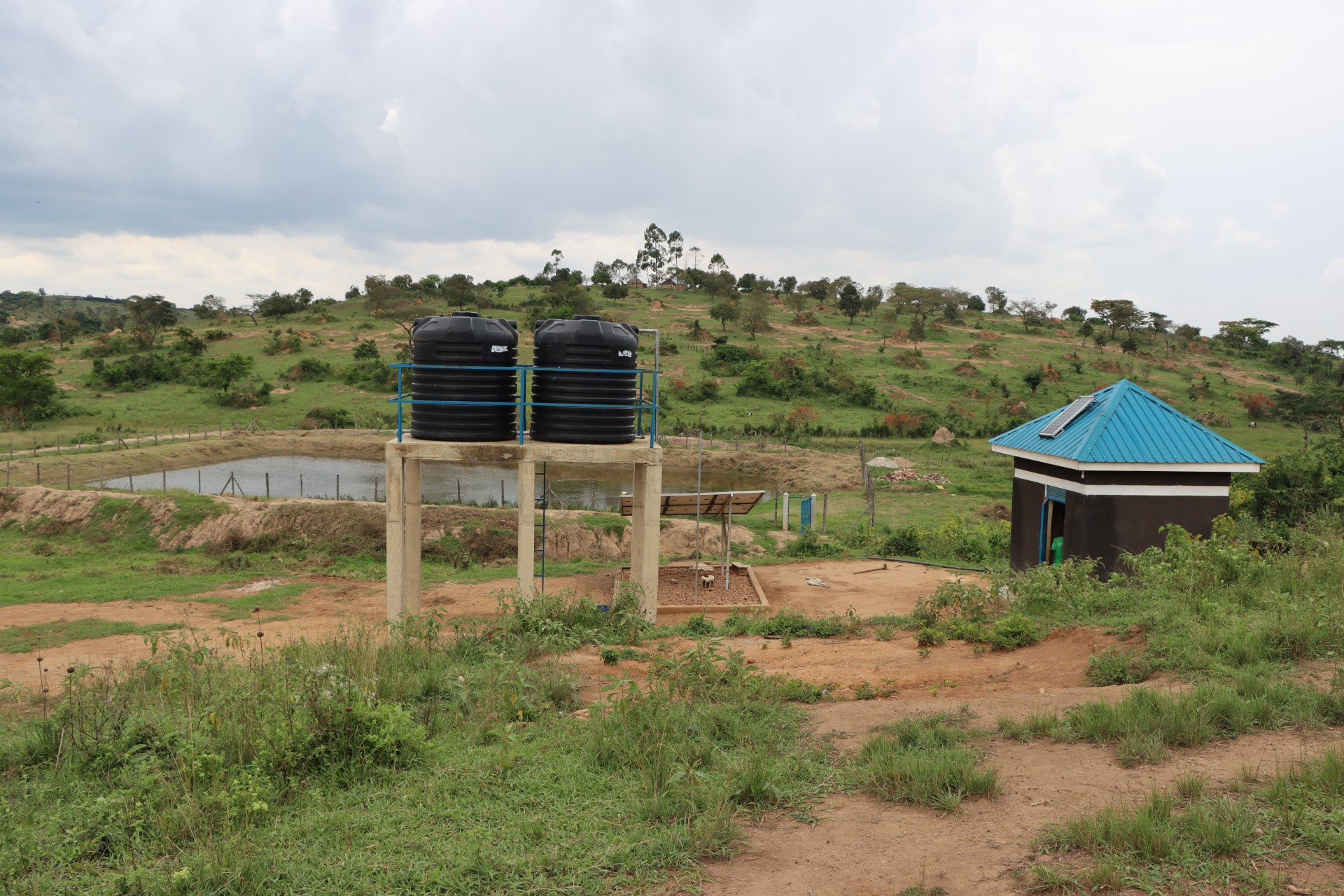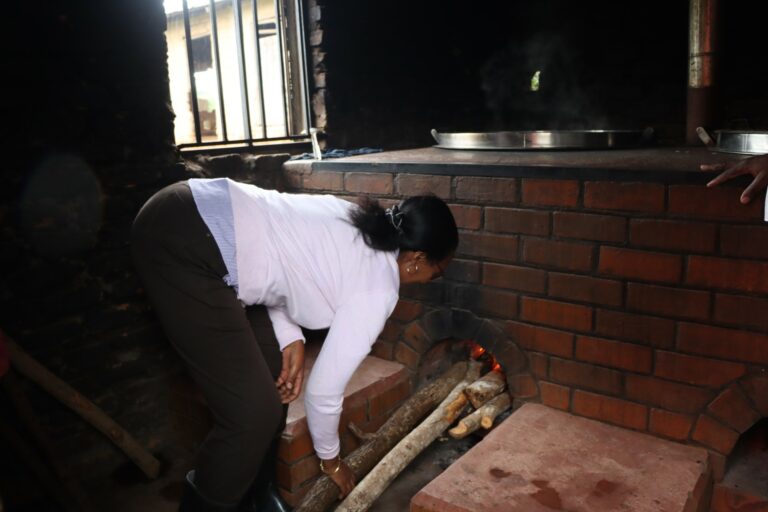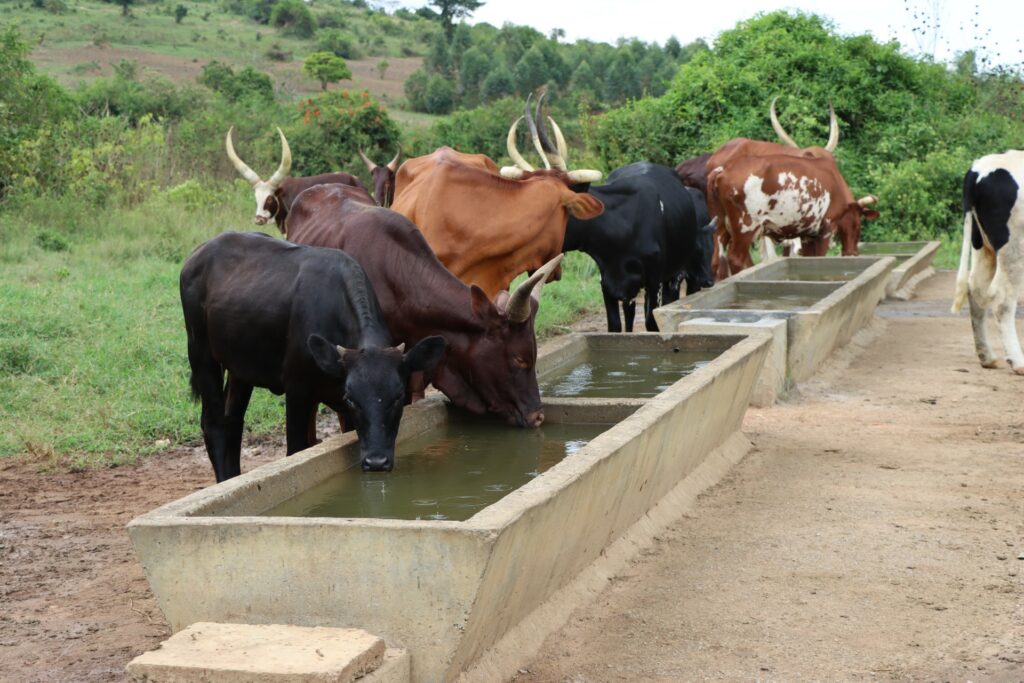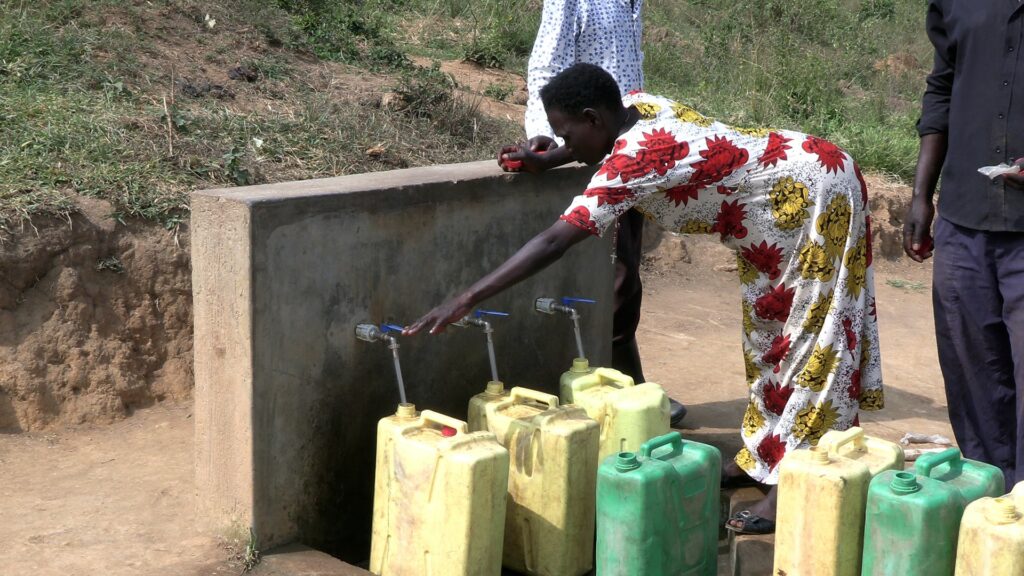
For decades, residents of Musaka and Mubende districts in Central Uganda have been grappling with the depressing effects of climate change.
The ravaging floods that rendered many families homeless and reduction in yield potential are among the problems the natives of the region were forced to live with.
But for the past three years, a ray of hope has been shining in most of the villages following the successful implementation of Adapting to climate project in the Lake Victoria Basin (ACC-LVB) coordinated by the Lake Victoria basin commission.
The project was funded by the adaptation fund through the UN environment to a tune of USD 5 Million.
Uganda which is among the five partner states where the project is being implemented received USD 520,000.
In Masaka district the Project has piloted construction of modern institutional energy saving stoves in 3 public Schools namely Kijjabwemi Church of Uganda Pri, St. Damian Buyaga and Tekera.
Deputy Executive Secretary Eng. Coletha Ruhamya during site visit at Buyaga Primary in Masaka District

The schools have been able to reduce their firewood consumption by a third (1/3 ) of their previous consumption.
This has contributed to reduction of biomass required for cooking.
Through the use of biomass, the three institutions have saved approximately USD 1,602 annually.
The project has also piloted planting of woodlots on 35Ha of land in Masaka Buyaga Parish.
In addition, it has also established woodlots by planting 35ha of land with local and indigenous tree species in (Musambia, Terminalia and Musizi villages in Masaka District;
In Mubende District two 5,000m3 capacity Valley tanks have been constructed in Rwobushumi and Kalungi Villages.
Cattle drinking water at cattle drinking trough in Rwobushumi Valley Tank

Over one hundred and seventy two and one hundred and fifty two households are set to benefit from the construction of these Valley tanks in Kalungi and Rwobushumi Villages respectively.
The construction of the water tanks will save the communities from walking long distance in search for water.
Janipher Ayimbisibwe a beneficiary of the Valley Tank in Rwobushumi Village Mubende District said
“We use to walk for long distance in search for water before the tank; it was really tough for us women especially pregnant women”.
Community member fetching water from Rwobushumi Valley Tank in Mubende District

Nabbosa Juliet Head Teacher of St. Damian Buyaga Primary School, Masaka District confirms that the new cooking method has been economical to them.
“Previously we use to consume more than four trucks of firewood per term costing approximately 800,000 UGX but now with the new energy cooking stove we are consume less than two trucks of firewood which is approximately 400,000 UGX.” She said.
Nyamwiza Jane,a beneficiary of household energy cooking stoves in Kalungi Village Mubende District said”
“We no longer have smoke in our kitchen, our kitchen is now safer, we are not afraid of suffocating or getting burnt, we can even cook with our children inside the kitchen without fear, we are very grateful for this project it has really changed our lives
According to the projects National co-ordinator Eng Pamela Agaba, the faces of the victims who were affected by the climate change are now radiating with joy
Eng Agaba said, “We have registered a lot of benefit and success stories from this project and we are looking forward to upscaling the project to have bigger scale of interventions.
She confirmed that since its inception, the project has had a positive impact to the residents.
Pamela stated that many villagers living in Masaka and Mubende, the project has solved most of their Climate Change induced challenges ranging from water scarcity due to prolong drought; wood fuel scarcity and lack of Pasture for their livestock. She recounts how the community had to walk for long distance in search for water and firewood.
Additionally, the Project has supported setting up of model farms for improved pasture management in Mubende district where pasture nurseries (for Cloris Gayana, brochiaria and Centrosema grass species) have been set to provide feeds for cattle during the dry season.
Similarly, through this Regional Project, the ministry of water and Environment in Uganda has also facilitated training of the local community in the twin districts.
The residents have been trained in making their own household energy saving cooking stoves using locally available materials.
“This technology also reduces the time women and girls spend in fetching firewood for the house .It has also increased health benefits associated with smoke free cooking environment as well as preventing accidents from open fires.” Eng. Pamela said.
The project also supports the beneficiaries at household levels to practice soil and water conservation measures like use of contour bunds and agro-forestry.
Different species of trees like Eucalyptus, Musiizi, Pondo, Mahogany, Grevilia and preferred fruit trees which has been planted helps in reducing soil erosion and improvement of soil moisture content.
Apart from Uganda, The Adapting to Climate Change in Lake Victoria Basin (ACC-LVB) is also being implemented in other east African partner states of Burundi, Rwanda, Kenya, and Tanzania.
Ends.